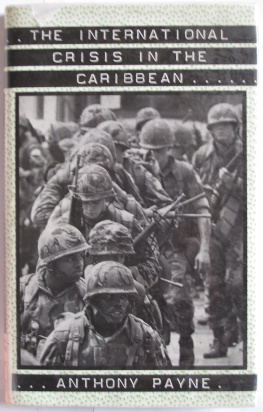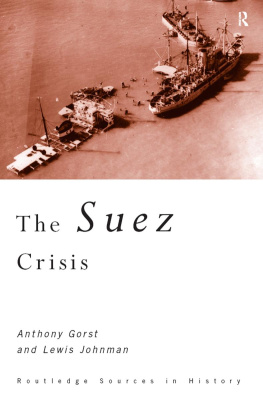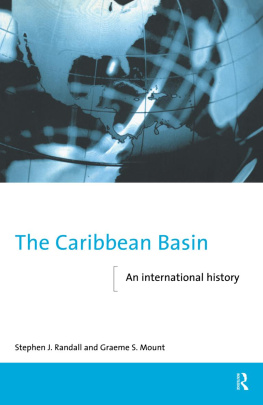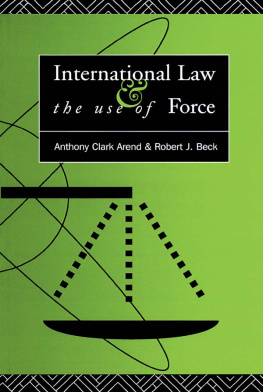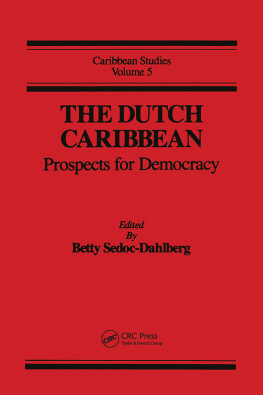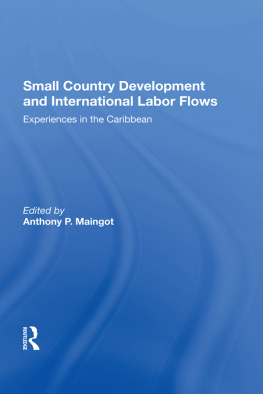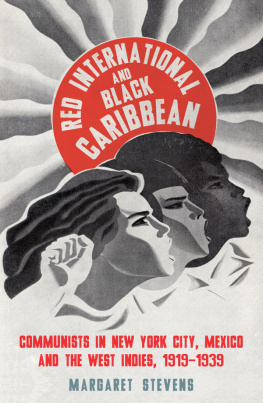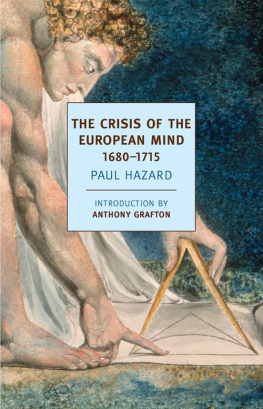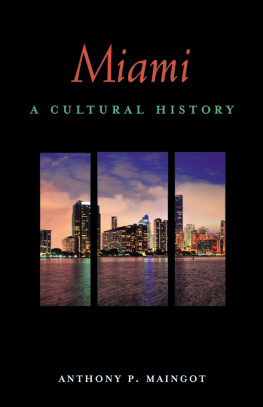REVOLUTION
Volume 15
THE INTERNATIONAL CRISIS IN THE CARIBBEAN
THE INTERNATIONAL CRISIS IN THE CARIBBEAN
ANTHONY PAYNE
First published in 1984 by Croom Helm Ltd
This edition first published in 2022
by Routledge
4 Park Square, Milton Park, Abingdon, Oxon OX14 4RN
and by Routledge
605 Third Avenue, New York, NY 10158
Routledge is an imprint of the Taylor & Francis Group, an informa business
1984 Anthony Payne, Paul Sutton and Tony Thorndike
All rights reserved. No part of this book may be reprinted or reproduced or utilised in any form or by any electronic, mechanical, or other means, now known or hereafter invented, including photocopying and recording, or in any information storage or retrieval system, without permission in writing from the publishers.
Trademark notice: Product or corporate names may be trademarks or registered trademarks, and are used only for identification and explanation without intent to infringe.
British Library Cataloguing in Publication Data
A catalogue record for this book is available from the British Library
ISBN: 978-1-032-12623-4 (Set)
ISBN: 978-1-003-26095-0 (Set) (ebk)
ISBN: 978-1-032-17236-1 (Volume 15) (hbk)
ISBN: 978-1-032-17239-2 (Volume 15) (pbk)
ISBN: 978-1-003-25242-9 (Volume 15) (ebk)
DOI: 10.4324/9781003252429
Publishers Note
The publisher has gone to great lengths to ensure the quality of this reprint but points out that some imperfections in the original copies may be apparent.
Disclaimer
The publisher has made every effort to trace copyright holders and would welcome correspondence from those they have been unable to trace.
THE INTERNATIONAL CRISIS IN THE CARIBBEAN
ANTHONY PAYNE
1984 A.J. Payne
Croom Helm Ltd, Provident House, Burrell Row,
Beckenham, Kent BR3 1AT
Croom Helm Australia Pty Ltd, 28 Kembla Street,
Fyshwick, ACT 2609, Australia
British Library Cataloguing in Publication Data
Payne, A.J.
The international crisis in the Caribbean.
1. Caribbean area Foreign relations
I. Title
372.091821F2177
ISBN 0709920520
Typeset by Mayhew Typesetting, Bristol
Printed and bound in Great Britain
by Billing & Sons Limited, Worcester.
CONTENTS
2. Contemporary Patterns of Change and Instability
3. United States: Decline and Reassertion of Hegemony
4. Cuba: Menace or Model?
5. The Old European Powers: Britain, France and the Netherlands
6. The New Latin American Powers: Venezuela, Mexico, Colombia and Brazil
7. The Caribbean Voice: Foreign Policy Within the Region
8. Conclusion: The Present and Future State of the Crisis
Epilogue: The US Invasion of Grenada
Appendix
Select Bibliography
To my parents

Preface
The Caribbean is currently a cockpit of international conflict and competition. In the telling phrase of the US State Department, it is a circle of crisis. Certainly, in the light of the past, there is a crisis. The traditional model of international relations in the area has been one of unquestioned and largely unquestioning US hegemony, qualified only by the delegation of authority to the original European powers in respect of particular parts of the region. This is not to say that US control has never been challenged. Unsuccessful attempts to break away from the constraints of US imperialism occurred in British Guiana in the 1950s and early 1960s, and in the Dominican Republic in the mid-1960s; the most successful and celebrated took place in Cuba in 1959. However, the Cuban revolution had no immediate successor in the Caribbean, which has meant that, until recently, these cases remained relatively rare and isolated exceptions to a familiar pattern of acquiescence in US domination. For the most part, the rest of the world was indifferent to Caribbean politics; sometimes it was curious, sometimes amused, but hardly ever concerned. This is the mark of what has changed. A series of unsettling political developments, seemingly increasing in pace as the 1970s proceeded, forced other countries, not least the United States, to take notice of the new instability of the region. The result is that the Caribbean is now recognised as a battleground on which the rivalries of great and middle powers, the competing merits of alternative ideologies and development strategies and the ambitions of individual leaders are all being fought out.
This book provides an introduction to this situation. It describes the background to the major problems of development facing the Caribbean and explains how they created the potential for an intensified competition for influence in the region, involving several external powers. The positions and policies of these powers are then examined in the body of the text. Finally, there is offered a concluding assessment of the nature of the international crisis surrounding the region, and some suggestions of policies that might lead to its resolution.
The immediate inspiration for the book came from a period of some eighteen months working as a specialist adviser to the House of Commons Foreign Affairs Committee during the course of its inquiry into the Caribbean and Central America in 1981 and 1982. The demands of the inquiry forced me to think hard about the international politics of the region and made me realise how little understood it was. I should stress, however, that the book is not in any way based on confidential papers to which the Committee had access, nor does it reflect the views of anyone connected with the inquiry. Indeed, should they alight upon it, some of the members of the Committee will no doubt be horrified by my analysis. I thank all of them, nevertheless, for involving me in their work.
I also need to thank several other people. They include Brendan Evans and other colleagues at Huddersfield Polytechnic, who taught more intensively so that I might have the time to write; my fellow Caribbeanists, Colin Clarke, Paul Sutton and Tony Thorndike, who commented on all or part of the manuscript for me; Jackie Hepworth, who typed the whole text very efficiently; and, as always, my wife, Jill, who looked after our two boys and me with her usual unequalled care and attention during the period in which this book was written.
AJP
Huddersfield
Introduction: The Imperial Mould
Books about the Caribbean commonly begin with an attempt to define the region. They do so with good reason, for the Caribbean poses genuine problems of identification and demarcation. It displays such an enormous variety of historical connections, social patterns and cultural traditions that it can easily seem as if no common characteristics can possibly attach to the region as a whole. In practice, the Caribbean means different things to different people, with the result that there does not even exist an agreed view of which countries constitute the region. Several alternative definitions compete, each deriving from a particular political perspective. Indeed, the very process of defining the region, especially by outsiders, is almost unavoidably a political act in its own right.




